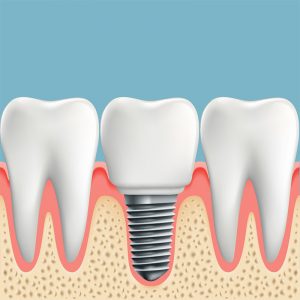The goal of modern dentistry is for each & every patient to keep all their teeth for their entire lifetime. As dental health awareness & dental technology have advanced over the last half century, we now see fewer older people who are missing all their teeth (a condition dentists call edentulism). Still, we find that people may loose a tooth or a few & not think much of it. The reality is that a missing tooth is far more than just a gap in your smile: it can have serious oral health & psychological effects down the line. Read more
The Vital Reasons Why You Should Replace Missing Teeth




 Dental implants are the latest & greatest in dental technology that allows dentist to replace missing teeth permanently. You may know that implants can replace teeth & are used in complete smile reconstructions & makeovers. But you may also not be sure exactly what
Dental implants are the latest & greatest in dental technology that allows dentist to replace missing teeth permanently. You may know that implants can replace teeth & are used in complete smile reconstructions & makeovers. But you may also not be sure exactly what